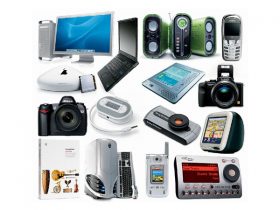
Built-in Obsolescence
On the one hand, all of our modern technological gadgets are great. Almost every manufacturer comes out with new models of everything from smartphones to tablets almost on a monthly basis. For many of us, an older cell phone, which may be approaching the end of its useful life, is easier to discard than repair. After all, it does not have all the latest features that many of us want and, therefore, is not very useful in the modern world. However, these older electronic appliances contain those rare earth metals, which are highly toxic and are a major source of pollution. Just tossing them into a landfill creates a major environmental challenge going forward. The “discard and forget about it” model is just not sustainable if we’re going to maintain even a semblance of ecological balance.
One Possible Solution
Almost all companies in the UK have a wide variety of computers and portable electronic devices which often need to be replaced. However, just tossing them out without a second thought poses serious risks. For one, the information on a computer hard drive or even on a mobile device may not be completely erased, even if the company thinks they have gone to great lengths to do so. The second is the fact that, once again, we are faced with the issue of causing additional pollution in landfills. The solution to solve both of these problems is to visit a company that will make sure that any information on old equipment is completely destroyed and that the individual components are recycled according to the latest and best practices.
What Is the Answer Going Forward?
Today’s electronics rely on rare earth metals for many of their internal circuits. We can only hope that scientists will find substitute materials in the future which are not only easier to extract from the ground, but which are also less toxic overall. If that balance can be achieved, we will arguably be able to manufacture less-expensive products while not creating such a harmful environmental impact.
























